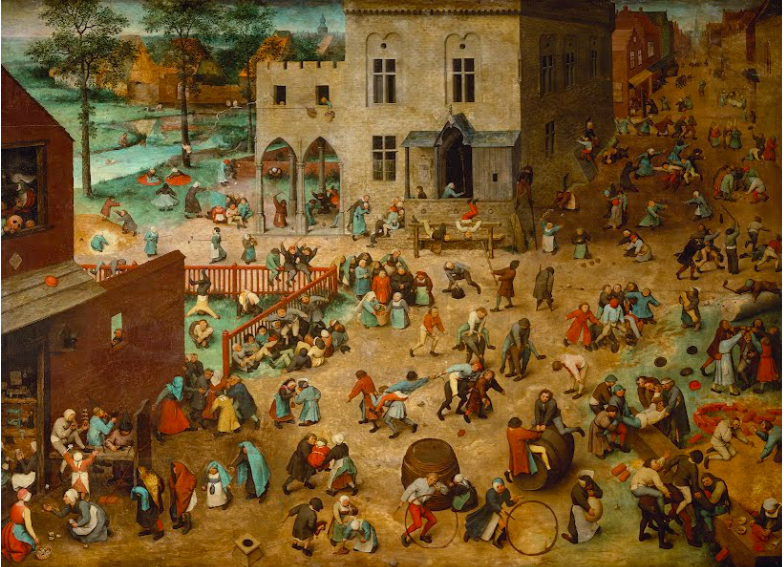“Children learn more from how you behave than from what you teach them”
#PhilosophicalWednesday #15
A view of the square, between an opening towards the city streets and the gaze that space towards a rural context: here there is a crowd teeming with children, but also with adults, who delight in a thousand activities, or rather, in a eighty different games: this is Pieter Bruegel the Elder‘s Children’s Games.
Small but extremely precise figures, which if observed one by one perfectly convey the hilarity and joy of the moment, which involves everyone without distinction.
The game, as such, has always been linked to the figure of the child, who by nature is free, spontaneous, thoughtless. However, play is also a moment that can create a bond between the adult and the child himself.

Pieter Bruegel the Elder, Children’s Game, 1560 – Courtesy Google Arts&Culture
In childhood you have fun among peers, but this does not exclude the presence of playful moments, with parents and relatives, or in any case with other adults: moments which by their nature are joyful, but which at the same time also bring with them teaching opportunities. and growth for the little ones.
From the observation of those who are older, but who know how to have fun with them, they learn and then imitate, creating memories and reflections that they will carry with them in the days, but also in the following years.
It is what you find yourself experiencing and experiencing that marks you the most, with a greater influence than what is methodically taught.
